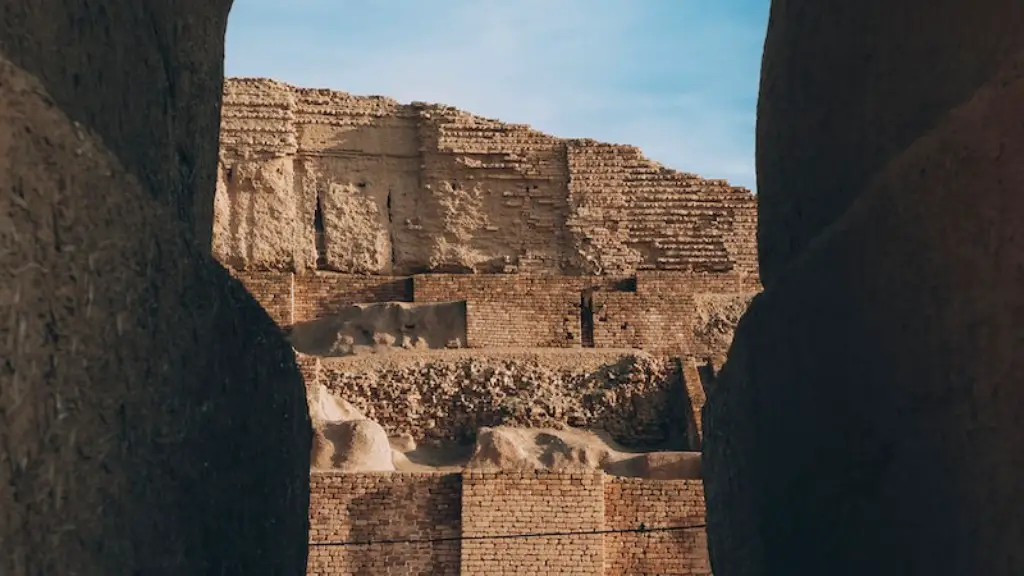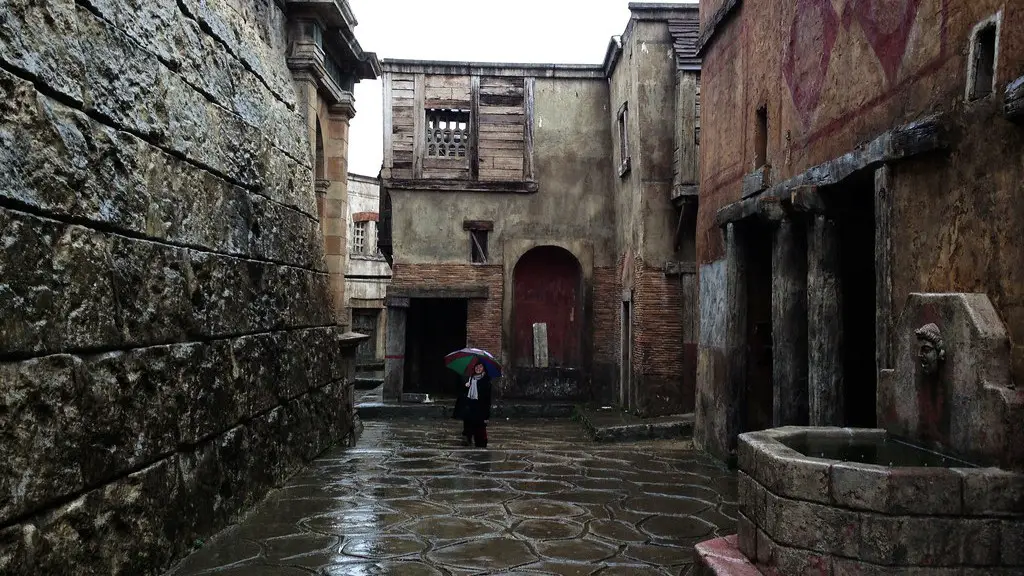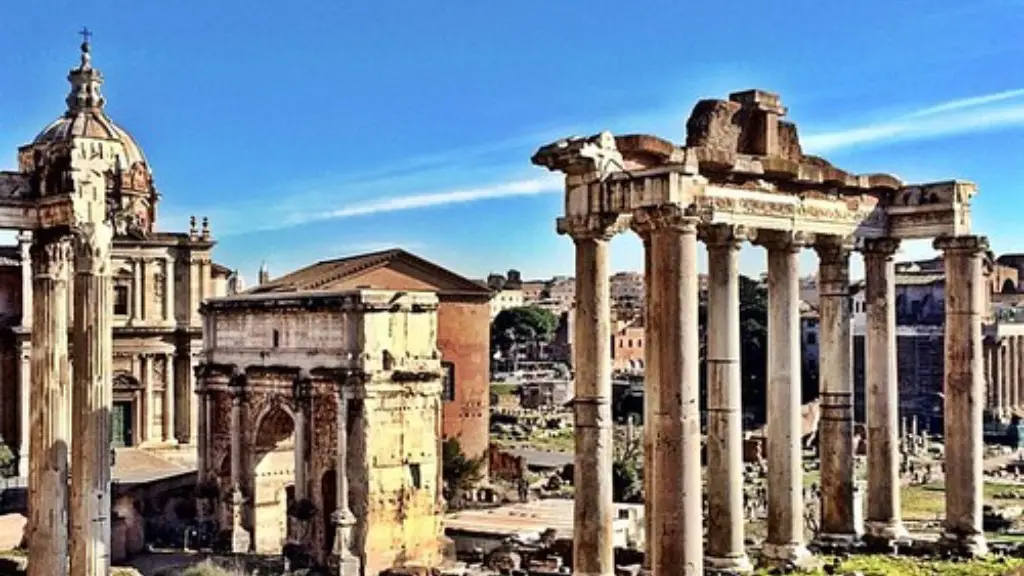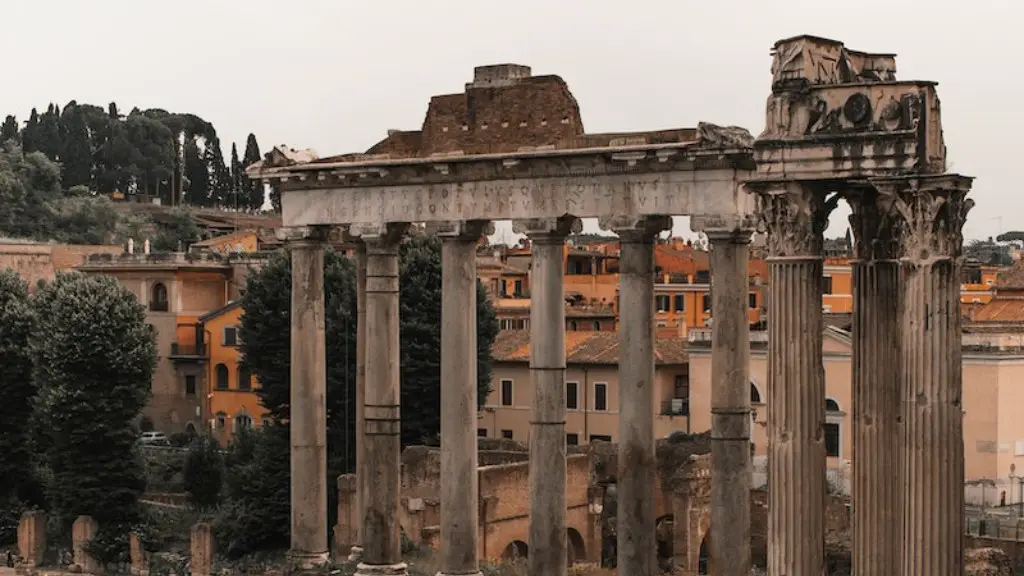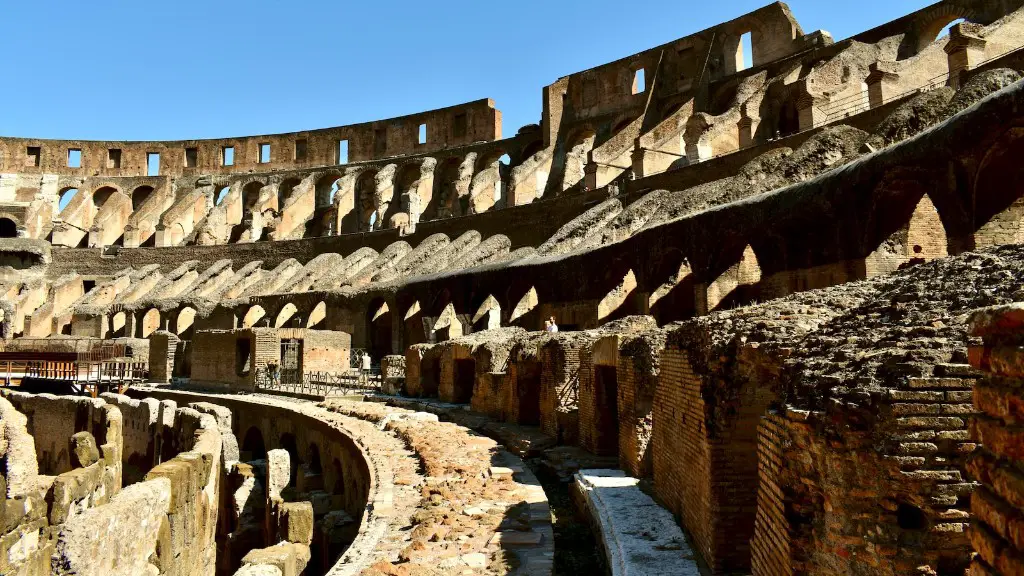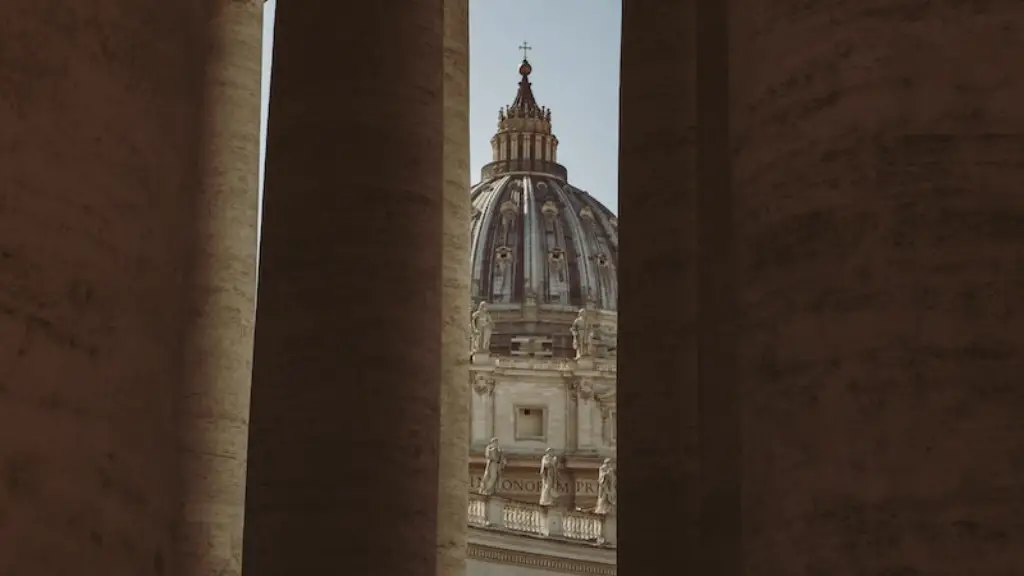Citizens of Ancient Rome
Ancient Rome was one of the most influential empires of all time, spanning large parts of Europe, Africa, and Asia. As with any complex and vast empire, the ancient Roman economy required a variety of people dedicated to a variety of jobs to make it run smoothly. From lowly street cleaners to the high-ranking government officials, many different job roles emerged in Ancient Rome to ensure the power and prosperity of the city.
Overview of Jobs
The primary industries in Roman society were farming, fishing, trade and commerce, and military service. In addition, there were jobs specialized in engineering, urban planning, and different forms of art. Government jobs included court magistrates, senators, praetorian guards, and emperors. In addition to these, some jobs were more a part of everyday Roman life and culture. This included bakers, wine makers, blacksmiths, and scribes.
Life of a Roman Citizen
To understand the roles of Ancient Rome citizens, it’s important to look at the everyday life of a person who lived during that period. Roman citizens, both patrician and plebian, had the right to vote, legal protection, and financial support from the government. They were expected to pay taxes and to take part in the military and to obey laws. In addition to this, Roman citizens also had to be part of the labor force. This meant working in various occupations, from manual labour to craftsmen, depending on the local economy.
Aristocracy and the Professional Classes
Within Ancient Rome, there was a definite hierarchy. At the top were the patricians or those of aristocratic background and noble birth. These people had a monopoly on politics, government, and military roles. However, there were also the plebeians or commoners, who made up the bulk of the population and labored in common professions. They also served in the army and were often merchants, traders, and craftsmen.
The Institution of Slavery
One of the most prominent features of Ancient Rome was slavery, which was an essential part of the Roman economy. The majority of slaves were prisoners of war, criminals, or people who had been sold into slavery. Slaves were used in many different contexts, from manual labor to entertainment and education. They also performed agricultural and domestic duties such as cooking, cleaning, and other household tasks.
The Role of Women
Women in Ancient Rome typically stayed at home and took care of the children and the family. Some women, however, had prominent roles in the public sphere. These included the Vestal Virgins, priestesses of the Goddess Vesta who were responsible for maintaining sacred fire and the Vestal temple. In addition, there were also women who owned and operated businesses, and some of the most powerful women of Ancient Rome held positions such as advisors to the emperor, politicians, and very wealthy merchants.
Trade and Commerce
In Ancient Rome, trade and commerce was a major part of the economy. It was highly regulated by law and was organized by professions and guilds, which were responsible for determining the quality of a product, setting wages and production processes, and ensuring fair practices. Trade in Ancient Rome was conducted both over land and sea, and many different goods were traded, including wine, olive oil, spices, fabrics, and furniture.
The Role of Merchants
Merchants played a vital role in Ancient Rome’s economy. They bought and sold goods and regulated prices. In addition, they were responsible for keeping accurate records and documents, negotiating contracts, and protecting the interests of their customers. Merchants also acted as intermediaries in international trade and were often quite wealthy, as commerce was a lucrative industry.
The Role of Financiers
Financiers were also an important part of the Ancient Roman economy. They were responsible for providing capital for businesses, lending money, and providing financial advice. Financiers specialized in a variety of areas, from public works to private banking. They were also money lenders and could loan out money to those in need, often charging a high interest rate.
Types of Customers
The Ancient Roman customers came from a variety of backgrounds, including the wealthy upper class, the poor, and everyone in between. Most customers were ordinary citizens who relied on merchants and financiers to provide everyday goods and services. They could also send their money abroad or invest in foreign markets with the help of a banker.
The Role of the Emperor
The Emperor was a key figure in Ancient Rome’s economy. He controlled and regulated the money supply and influenced the price of goods and services. He was also responsible for managing and developing the economy and oversaw foreign trade. The Emperor also imposed taxes on citizens, funded public works, and issued edicts to ensure order and security.
Government Jobs
Government jobs were highly sought after in Ancient Rome and were often a mark of prestige and power. Many of these jobs included magistrates, praetorian guards, senators, and emperors. Magistrates were responsible for overseeing the administration of justice. Praetorian guards were the personal bodyguards of the Emperor. Senators, an elite group of Roman citizens, held positions of power in the government and set laws. Lastly, the Emperor was the highest official and was considered divine, granting him absolute power.
Public Works
In addition to government roles, public works also played an important part in Ancient Rome’s economy. These included aqueducts and public baths, as well as other infrastructure systems such as roads and bridges. The public works were managed and maintained by lower-level civil servants, and some of the more prominent projects, such as the Coliseum, were funded by the imperial coffers.
The Role of the Army
The military of Ancient Rome was an essential part of the economy and was responsible for maintaining the empire and defending its borders. In addition to services in the army, civilians were also employed in engineering, supplying, and support roles. These positions were considered prestigious and many Roman citizens sought them out.
City Planning
City planning was an essential element of Ancient Rome’s economy. Architects and engineers designed important public works, while surveyors mapped out the city and laid out streets and pathways. Urban planners prepared blueprints for new neighborhoods and developments, while masons and labourers constructed the buildings and infrastructure necessary for the city’s growth.
Religion and Entertainment
In Ancient Rome, religion and entertainment had an important role to play in the economy. The gods of Ancient Rome were an integral part of daily life, and religious festivals and ceremonies were important to the city and its citizens. This led to an array of religious roles, from priests and priestesses to musicians and entertainers. In addition, citizens could attend the Forum or watch various events in the Coliseum.
Priests and Priestesses
Priests and priestesses were a crucial part of the religious hierarchy of Ancient Rome. They were responsible for performing rituals and sacrifices, as well as interpreting and teaching the gods’ laws. They were also advisors to the government, providing counsel on legal and political matters.
Gladiators and Entertainers
The Coliseum was a symbol of Ancient Rome and was used for gladiatorial games and other forms of entertainment. Gladiators were fighters who fought in the arena and were often slaves. They were trained and managed by professionals, who provided them with the necessary gear, weapons, and coaching. Entertainers, such as musicians, jugglers, and actors, were also popular with the Roman public, and their performances often filled the seats of the Coliseum.
The Role of Scribes
Scribes were another important part of Ancient Rome’s economy. They were responsible for written communication, from letters and documents to laws, instructions, and other official documents. They also kept records of government, business, and taxes, as well as other administrative tasks.
The Role of Education
Education was an essential part of Ancient Rome’s economy, as it trained citizens in the arts, literature, and other topics. Teachers and tutors were highly sought after and could command high salaries. As a result, education became an important field, and a variety of schools and universities were established to provide knowledge to the citizens of Ancient Rome.
